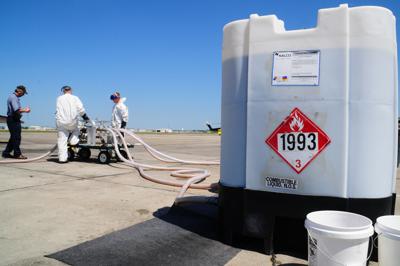Fishers who experienced health problems after the Exxon Valdez and Deepwater Horizon oil spills are among those who filed suit Thursday against the U.S. Environmental Protection Agency, urging it to craft new rules restricting the use of dispersants in oil spill cleanup efforts.
The suit alleges that the EPA has not updated its regulations to include lessons learned from the two oil spills, including health problems associated with chemicals used to disperse oil. Deepwater Horizon cleanup responders who were exposed to dispersants experienced lung irritation, skin rashes, headaches and dizziness at higher rates than those who were exposed to oil alone, according to research by the Uniformed Services University, a health science university in Maryland run by the federal government.
Nearly a decade of BP-funded research has uncovered a laundry list of potential health effects resulting from the Deepwater Horizon oil spill,…
In response to the 2010 Deepwater Horizon oil spill, over 1 million gallons of the dispersant Corexit 9572A were applied at the water surface, and more than 770,000 gallons of Corexit 9500A dispersant were injected directly at the wellhead at the bottom of the Gulf of Mexico.
Plaquemines Parish resident Kindra Arnesen is a plaintiff in the lawsuit. She and her family run a commercial fishing business and were exposed to dispersants. They have experienced skin rashes, migraines and respiratory problems following the spill. “We are all still suffering the effects from use of dispersants following Deepwater Horizon," she said in a news release. "I have seen firsthand the health problems the use of these chemicals can cause."
Despite initiating rule changes several times since 2013, the EPA has failed to add protective measures for chemical dispersants. Updating regulations for dispersants was dropped from the EPA’s unified agenda in the spring of 2017, according to the suit.
But Maggie Sauerhage, an EPA spokeswoman, said the agency is continuing to work towards rule changes that incorporate lessons learned from the Deepwater Horizon oil spill, with a projected completion date of 2021.
An unprecedented 28 major coastal restoration and flood protection projects, with a total construction value of $1.97 billion, will be put out…
The EPA does not comment on pending litigation, she said.
Students at the University of California-Berkeley Environmental Law Clinic helped file the lawsuit.





